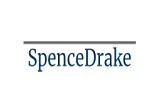A-Supreme Nursing & Home Care Services Inc. v. The King, 2023 TCC 39 (CanLII), https://canlii.ca/t/jwjb2
The Tax Court of Canada decision in A-Supreme Nursing & Home Care Services Inc. v. The King, 2023 TCC 39 ("ANHC"), involved a CRA audit of a staffing agency in the business of supplying healthcare workers, resulting in a reassessment for over $1,000,000 in GST/HST. The decision is of interest as it clarifies the scope and taxability of the supply of nursing services for GST/HST purposes. Furthermore, when a supply exhibits both taxable and non-taxable characteristics, how do you determine its principal or dominant purpose and therefore its taxability?
The main issue in ANHC was whether the appellant provided a taxable or exempt supply when supplying nurses and personal support workers to nursing homes and long-term care facilities. The CRA argued that the appellant should have charged GST/HST for the placement of nurses, which is a taxable supply. However, the appellant filed its tax returns on the basis that it supplied nursing services, an exempt or tax-free supply.
As per the Federal Excise Tax Act, RSC 1985, cE-1 ("ETA"), the majority of healthcare services are GST/HST exempt. GST/HST in Ontario, a combined 13%, is considered to be held in trust for the government when charged, referred to as a "deemed trust amount." It is the taxpayer's responsibility to collect, withhold and remit the tax. In AHNC, because the staffing agency failed to do so on the basis that the supply was not subject to GST/HST it was later held by CRA to be directly liable for the respective amount.
An exempt supply, pursuant to section 6 of Part II of Schedule V of the ETA, includes a "supply of a nursing service rendered to an individual by a registered nurse, a registered nursing assistant, a licensed or registered practical nurse or a registered psychiatric nurse, if the service is rendered within a nurse-patient relationship..." Considering this definition, was the appellant supplying nursing services or personnel?
Because the appellant provided individuals who directly carried out the nursing services, the nature of the supply exhibited both taxable and nontaxable characteristics. As per the decision in River Cree Resort Limited Partnership and Her Majesty the Queen, 2022 TCC 45, when a supply exhibits dual characteristics the court must determine the nature of the supply, including its principal or dominant purpose.
According to CRA, the appellant was supplying property, the personnel, rather than nursing services. Furthermore, the agency's position was that the service was not "rendered to an individual" but directly to the clients paying for the workers. Hence, the supplies were not rendered within a "nurse-patient relationship." However, at paragraph 25 of ANHC, referring to the TCC decision in Hôpital Santa Cabrini v Canada, 2015 TCC 264, and the respective evaluation of the term "rendered", the court stated that is "does not require that the recipient (in this case the Client) of the supply must be the party to whom the nursing services were rendered..."
The court also distinguished the Federal Court of Appeal's ("FCA") decision in Hôpital Santa Cabrini v. Canada, 2016 FCA 207 ("HSC"), which ruled that the supply in that case was taxable nursing personnel rather than services. The decision was anchored on the broad determination that the hospital was responsible for the provision of health care services, pursuant to provincial legislation. However, according to the decision in ANHC, at paragraph 36, the FCA did not intend "to make the general responsibility over the provision of health care services a necessary condition to providing nursing services...[T]he fact that the Clients delegated significant responsibility to the Appellant's nurses on a regular basis...suggests that they were supplying nursing services."
In ANHC, the TCC reasoned that the appellant's legal relationship with the workers, such as carrying liability insurance and educating nurses under certain circumstances, were factors indicating the supply of nursing services. The court distinguished the FCA decision in HSC and pointed out that if a nurse provided services as a sole-proprietor in the same scenario, that person would be providing nursing services.
Key to the decision is the fact that a supply can exhibit both exempt and taxable characteristics. For instance, an excerpt from the respective services agreement, at paragraph 8, specified that the appellant "shall provide staff (Registered Nurses and Registered Practical Nurses and Personal Support Workers) to perform nursing duties as long term home may require..." Accordingly, in order to determine the dominant characteristic, personnel or nursing services, the TCC was tasked with ascertaining what was provided, whether it was a single compound supply or multiple supply, and, if a single compound supply, the predominate element (River Cree Resort Limited Partnership and Her Majesty the Queen 2022 TCC 45).
The agreement between the appellant and its clients was for the provision of staff who carry out nursing services. However, the dominant element of the supply was in question, and multiple opposing factors were examined to determine it. The purchaser's perspective is a primary component in that determination. The agreement between the parties explicitly referred to the performance of nursing duties, which is a clear factor in favor of the supply of nursing services. This suggests that the provision of staff who carry out nursing services was the dominant element of the supply. In contrast, the appellant hired staff to recruit, evaluate, and provide nurses to its clients. After a review of multiple factors, the court determined that the predominate element was the supply of GST/HST exempt nursing services. As a result, the reassessments were referred back to CRA, reversing the greater than $1,000,000 tax debt.
The content of this article is intended to provide a general guide to the subject matter. Specialist advice should be sought about your specific circumstances.


